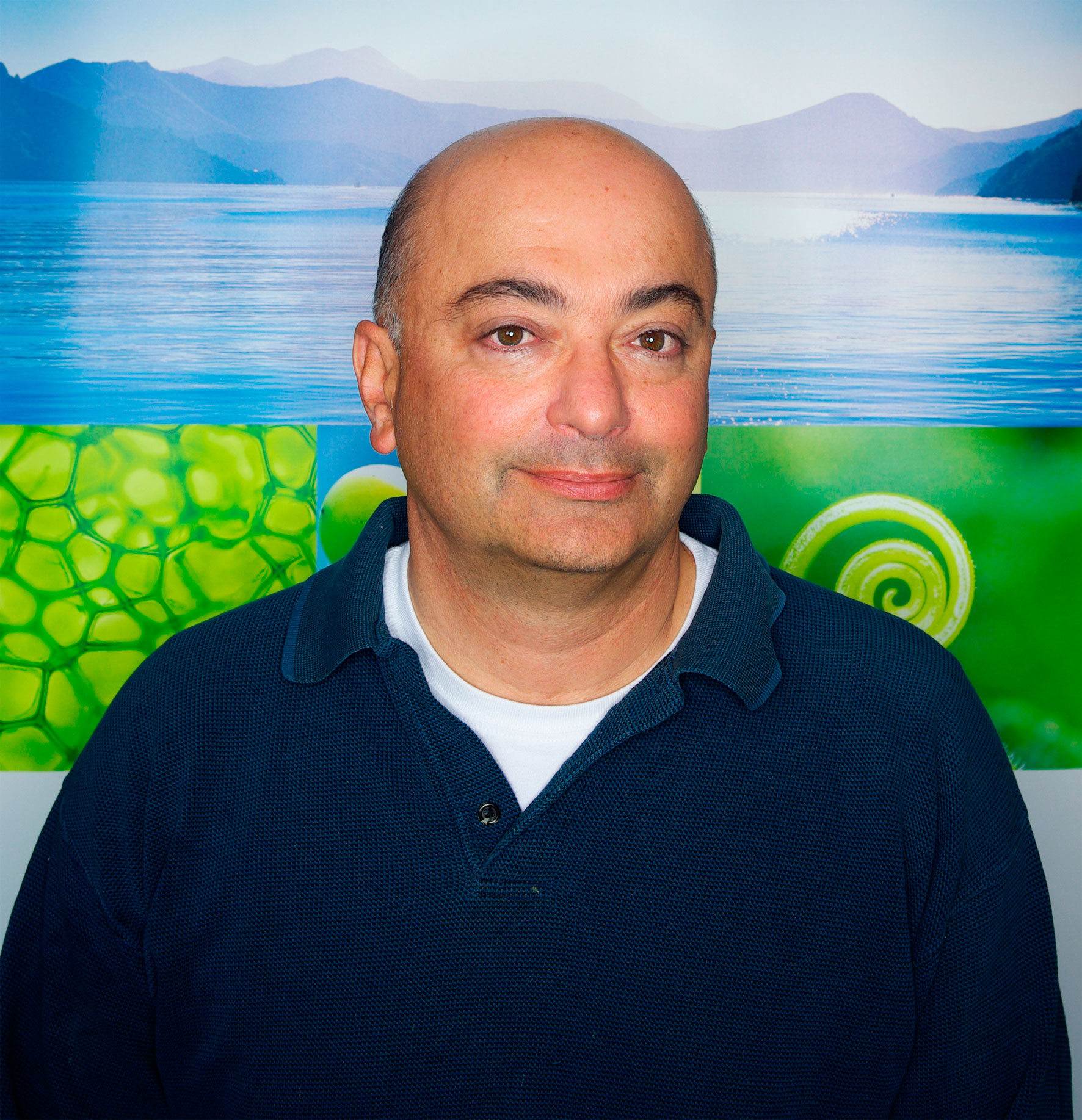Waikaitu is a Nelson-based company turning invasive seaweed into an organic fertiliser, and the export potential for its products is considerable.
Alex Pressman and wife Leanne left high pressure jobs in the San Francisco Bay area to move to New Zealand in 2002. Leanne was a senior personnel manager at Microsoft and Alex (pictured above) was the CEO of a tech company he founded and built to 160 staff.
“We really wanted to take stock of our lives and raise our two small children in a more relaxed environment,” Alex recalls.
The pair moved to Nelson, relishing the change of pace and warm welcome. But as the kids grew and became more independent, Alex found himself needing to do something creative.
The husband and wife team were concerned by the environmental damage being done through conventional agriculture and focused their energy on changing the industry.
“What I wanted to do was to take an environmental problem that no one was working on and try to solve it by building a business around it,” Alex says.
He established Waikaitu, a company that harvests invasive Undaria seaweed from the Marlborough Sounds and turns it into organic fertiliser, biostimulant and crop protection products. One of its fertilisers can reduce nitrate leaching by more than 40 percent.
“In a world that is full of inexpensive but low nutrition food, it made sense to me to create products that would allow us to improve the nutritional content of the foods we eat, reduce agricultural chemical pollution and reduce the spread of this pest seaweed in our waters.”
The business is solving two environmental problems at once – one in the ocean and one on land – while at the same time demonstrating attractive business growth and ROI for its shareholders.
Waikaitu has innovated rapidly and attracted like-minded development and business partners from small companies to multi-billion-dollar multinational giants of the industry.
Cutting through the noise
Alex says Waikaitu has seen the benefits of being a New Zealand company. “We found it to be a point of difference when reaching out to customers worldwide.
“Our clean and green image precedes us and makes it easier to cut through the noise of all those other companies looking for business. This image is worth many billions in marketing dollars to all of us so we must make sure we keep it intact and protect what we have.”
The company has more than doubled sales in the past year and aims to repeat the achievement this year.
“As we get bigger our sales are also accelerating so we had to increase our manufacturing capacity by 400 percent to be ready for spring season to start,” Alex says.
The company is building a pilot automated plant and will take the learnings from it to build a full-scale processing plant that will be able to deliver thousands of tons of products per year.
Although most of Waikaitu’s sales are in New Zealand, its sales mix is likely to change in the next couple of years. It will be entering new markets in Australia, Asia, Europe and the US with its full suite of organic biostimulants, fertilisers and crop protection products.
Its products have already been proven in the viticulture and kiwifruit industries and it’s now gaining interest worldwide.
New Zealand’s grape industry is only 0.2 percent of the world’s total, so Alex is confident Waikaitu will be able to capture some of that market based on its local success.
He says while more people have cottoned on to the harmful effects of traditional fertiliser, changing the way things are done in agriculture is challenging because almost everyone is invested in conventional farming.
He says this goes “all the way up to the banks” which can dictate what the grower can use on their crops in order to be considered for loans.
Despite the challenges, Alex says he wouldn’t change a thing about how he built Waikaitu.
“Not everything we have done worked but we used these mistakes to improve our learning and adjusted our process to make better products that the market wanted us to deliver.”
His advice for budding entrepreneurs is that their business must be potentially profitable from the get-go.
“It is a foundation on which you build everything else. If you can’t make a profit you will not be a business for long and if you are not in business, then you can’t make the positive impact you want to make.”
Article by Catherine Beard, executive director of ExportNZ and ManufacturingNZ – both divisions of BusinessNZ. Email [email protected] This article was first published in the October 2019 issue of NZBusiness.




